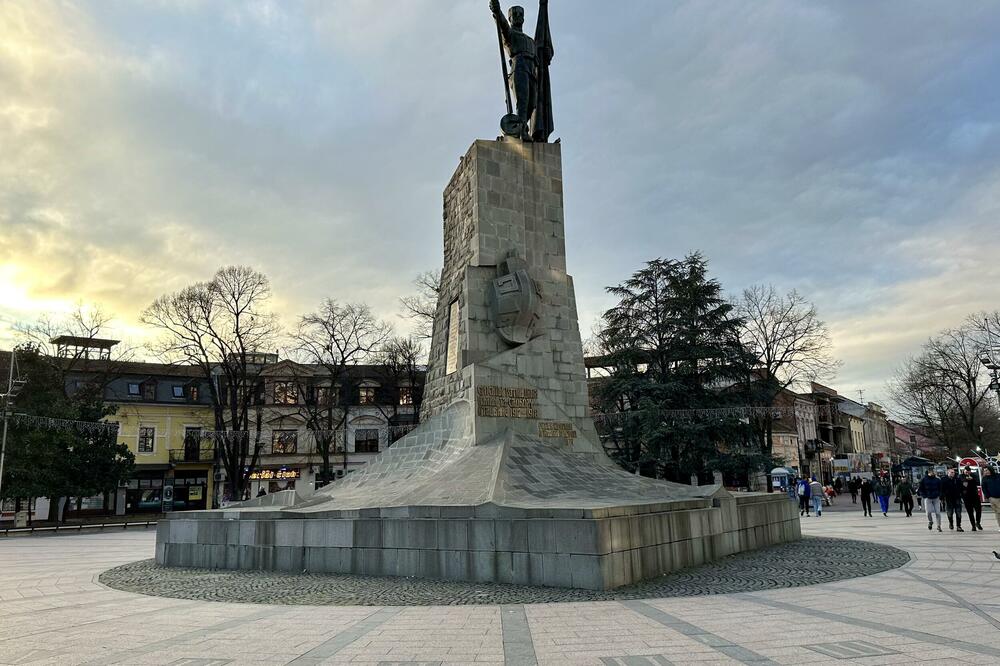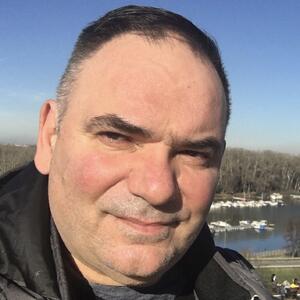We slide along the highway, pass Aleksinac, then exit to the "Moravian Corridor" which does not yet exist on satellite maps because it is not completed. At Vrnjačka Banja, the fog presses down on the landscape. The highway ends and the navigation announcer is satisfied, finally on the screen we are no longer hovering over the meadows, but driving along the old road towards Kraljevo. We arrive in the town in the increasingly dense darkness - although it's only around five o'clock. We cross the bridge and find ourselves in the middle of the city.
I remember that we once passed through here when we were aiming for Zlatibor, via Čačak and Užice. This time we turn into the city center itself. With some difficulty we find the unmarked parking lot of the Turist Hotel. After the formalities at the reception, we freshen up in the room and go down to meet the host, the famous writer from Kraljevo, Dejan Aleksić.
"Charter" - address of good books
Dejan leads us to the Stefan Prvovjenčani National Library, where three authors from this year's production are scheduled to read Charters. I will not describe the pleasant evening in the library at length. There I met really good friends and top writers, Vladimir Martinovski from Skopje and Živorad Nedeljković, a man whose poetry is as close to me as his calm, unpretentious way of communication. Someone who wrote these verses is my friend, although we didn't have much time to hang out in our lives:
But be persistent and write: when I would, if I would,
Because poetry is filled with longing and anxiety,
Virtue that draws the line in the square and in infinity.
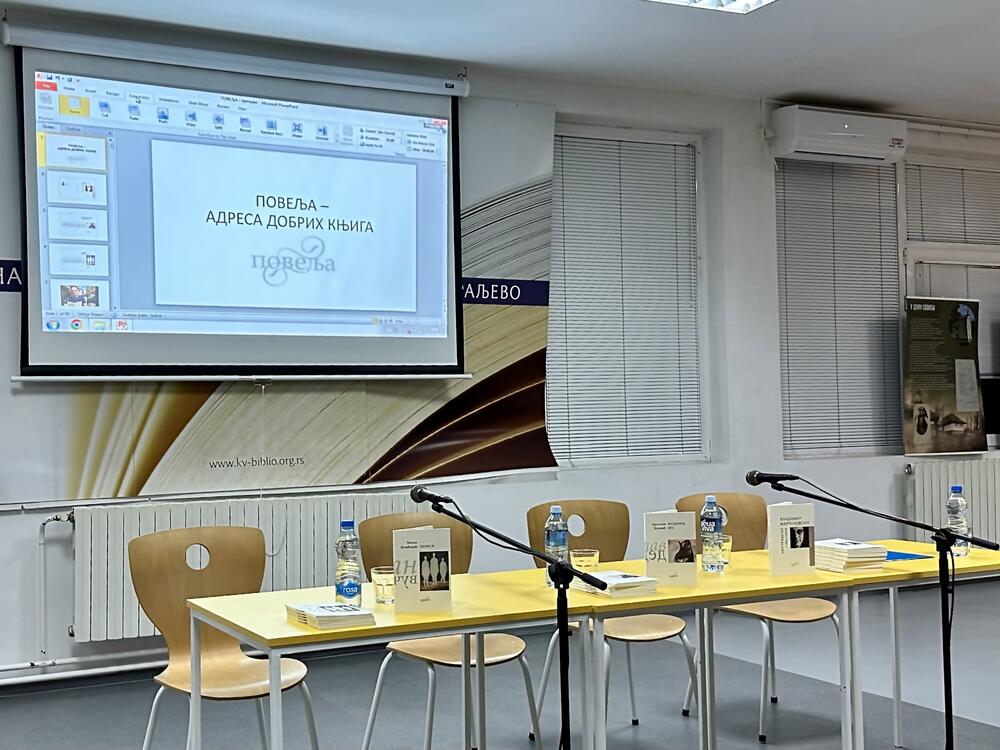
I am again hanging out with the Kruševac poet Milan Vučićević, whom I met at the Book Fair in Belgrade. Meetings like this are rare in which everything goes well, so we must keep the memory of them as a real treasure. After the literary evening, we will go to the principle meeting place of Serbian poets - a pub. First we try in a famous restaurant King, but there are no seats there on Fridays. However, the owner of this tavern owns another one, which is ten minutes' walk away and is called Geneva.
Walking in Kraljevo, we come across the Cathedral Church, which will turn 2024 years old in 200. It holds up well for its age. The money for its construction in Karanovac, as Kraljevo was then called, was provided by Prince Miloš. It is said that he spent the night in the town in a wooden church, and that he dreamed that he was praying in a large church. He promised God that he would really build a church if, with the help of heaven, he freed Serbia. Miloš hired the best real estate agents at the time - Janja Mihailović and Nikola Đorđević will leave their architectural mark in Belgrade as well - Konak of Princess Ljubica or Konak of Prince Miloš in Topčider testify to that.
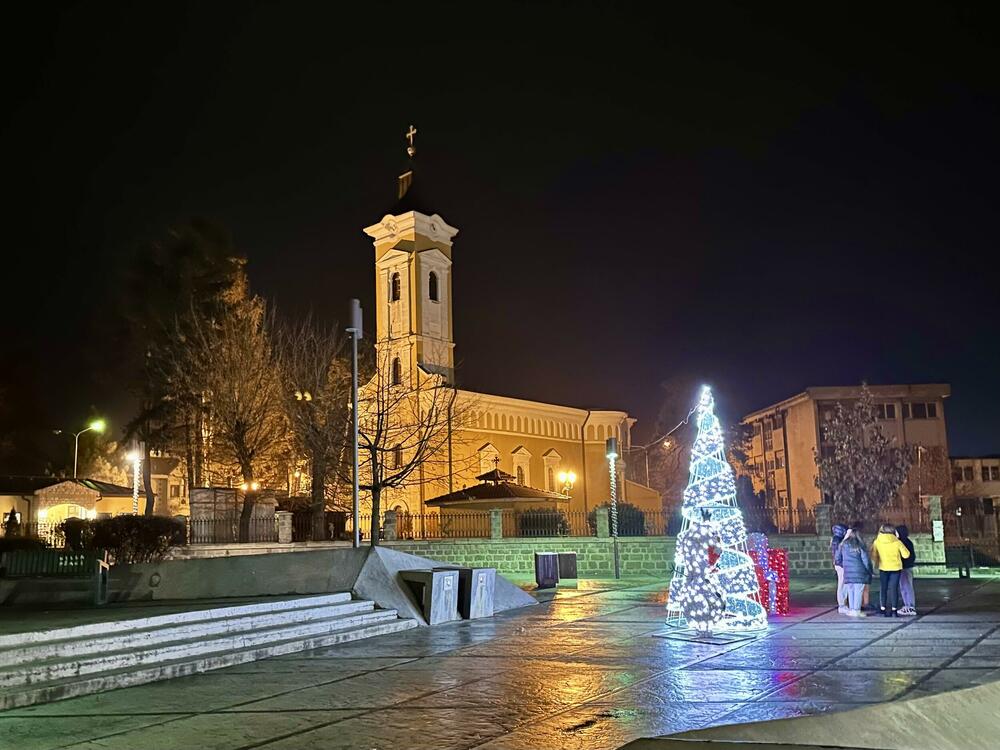
Although the name of the pub we enter, Geneva, promises some austerity, not so. Traditional good Serbian cuisine, relaxed atmosphere. The wives of poets Verica and Gloria are also at the table, which makes the gathering more charming and polite. We are starting to get acquainted with royal peculiarities. One of them is a whole range of interesting brandies. I chose Georgian thread and I was not wrong. The distillery from Guberevac, a village on the river Gruža, somewhere between Kraljevo and Kragujevac, knows what it's doing. For me, the only criterion was that the name of the brandy reminded me of a famous song: Are they beautiful, nano, Gružan girls, girls from Gruža are as beautiful as roses. I also remember the genius Dragiša Nedović from Kragujevac, who, in addition to this song, created one of my favorite Sevdalinka songs: "Stani, stani, Ibar vodo", but also many songs that are sung as folk songs in Serbia, Bosnia and Dalmatia. I toast to the company at the table and to Dragiša's spirit that lives in the songs, and let the taste of plums with a bit of caramel wash me away. A miracle of deacon arrives on the table.
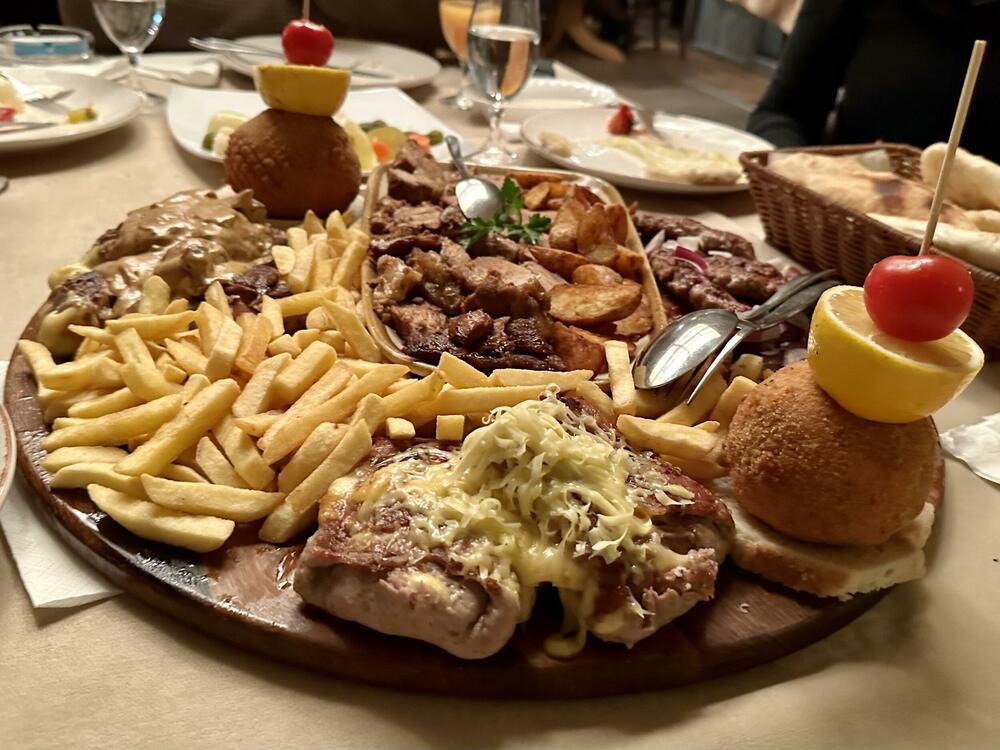
It is worth remembering that I am in Geneva saw ball-shaped Karađorđe schnitzels for the first time.
Friday night in Kraljevo is clearly a time for rejoicing. U Geneva the band plays folk songs, but the music also comes from several other addresses on the way to the hotel. It's cheerful in the hotel restaurant itself. This town has fun on the weekends in a tried and tested, home-style way. Lepa Lukić, Novica Negovanović and Tozovac are from these regions.
Morning with three Aleksićs
The morning in Kraljevo started with hanging out with Dejan in the newsroom Charters. The magazine is one of the most respected in the Serbian language area, it has been around for more than 50 years, which in local circumstances is an amazing age in the field of culture. In addition, the newsroom is located in a house that is perhaps over 180 years old. This "maybe" is necessary, because there is no deed that would determine the exact age of the building. Compared to the neighboring buildings, it is only a small house, but it is the oldest residential building in Kraljevo, authentic, folk architecture in the Balkan style. Unlike Gospodar Vasa's inn, which is larger and in a more visible place, the Adžić house is easy to find only if you know where it is. For generations, the owners of the house were the Novaković family, who built it, and then sold it.
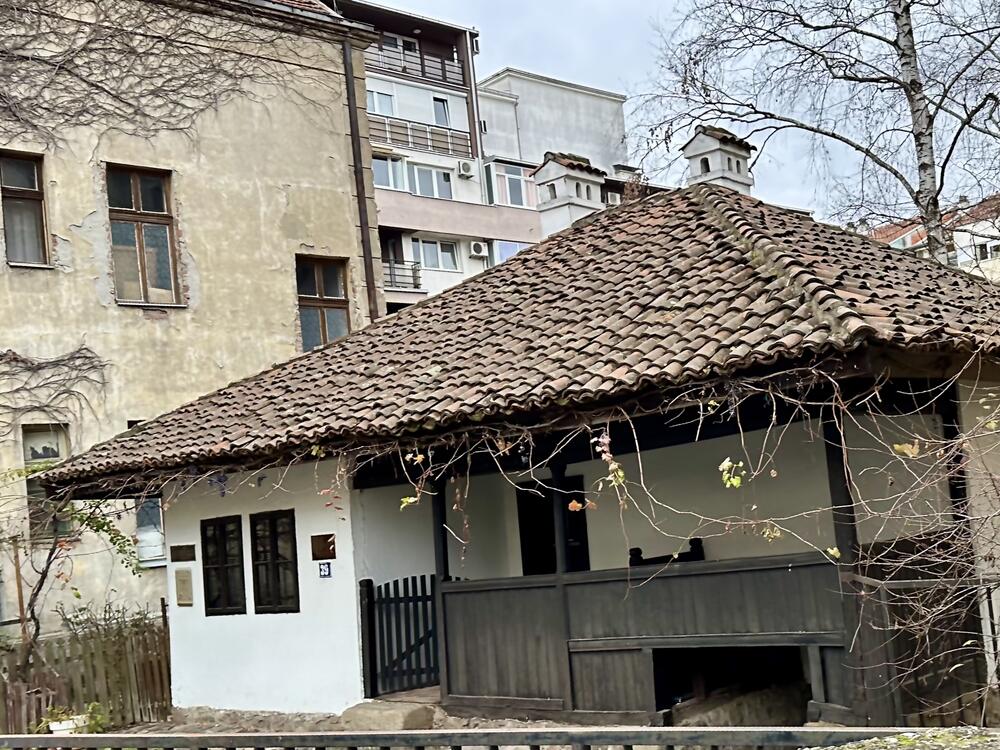
There is an inscription in Slovenian on the board in front of the entrance. Dejan reminds us that in addition to more than two thousand people from Kraljevo, the German occupiers also shot several dozen Slovenian refugees during the Second World War. The connection between Kraljevo and Maribor is visible not only on the board, but also on the vines that climbed up the roof beams - it is a gift from the Slovenians, which produces large, blue bunches in Kraljevo.
Dejan explains to us that in the socialist era, the Cultural and Educational Community was located there, and that the editorial office Charters moved into it in this millennium, after the democratic changes, when for Charter was the competent poet Dragan Hamović. Dejan came to us in addition to a series of beautiful editions Charters also gave away a bottle Gruzan threads, produced by the Aleksić distillery.
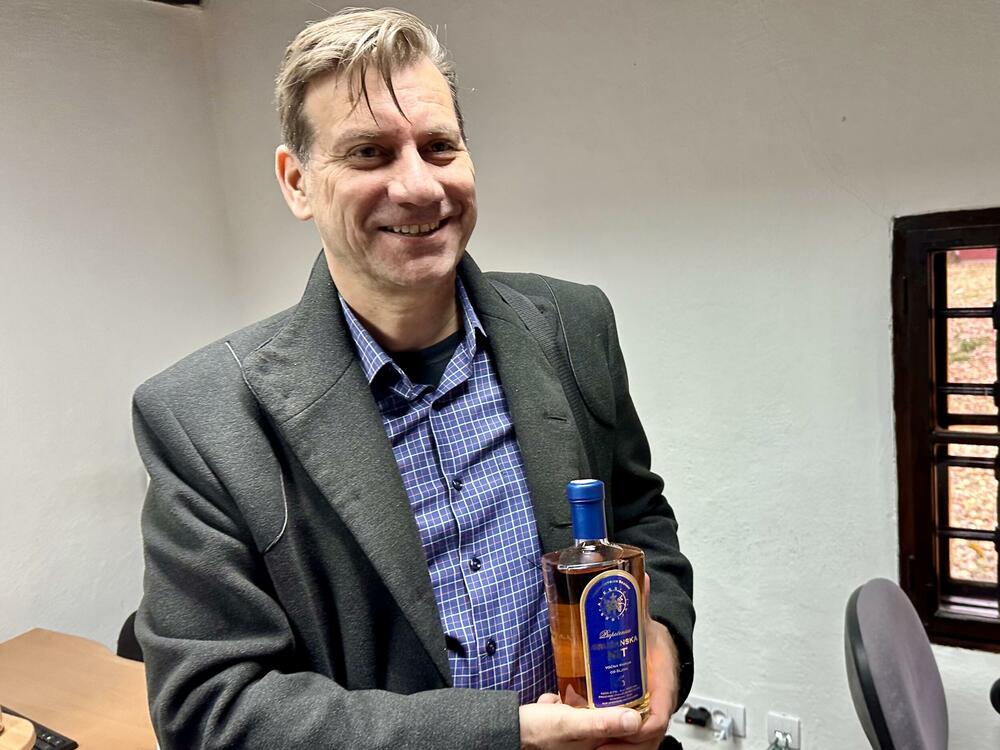
The owner is not Dejan's relative, but he is one of the three Aleksićs by whom we will remember this day. In addition to Dejan, who writes for connoisseurs, and the owner of the distillery, who presents us with flowing poetry, there is also the man after whom the Adžić house is named, he bought it in 1922. His name was Mihailo Hadži Aleksić.
On the Ibar
We walk along Kraljeva and admire the atypical, harmonious relationship between the Square of the Serbian Warriors and the streets that intersect at right angles. The monument to the Serbian soldiers who died in the wars from 1912 to 1918 is the work of the Russian architect Roman Verhovski and has been a symbol of the city since 1932. It is interesting that a year earlier the same architect erected an almost identical Monument to the Serbian defenders of Belgrade at Belgrade's New Cemetery.
Kraljevo differs from most cities in Serbia by this spacious square and its distinctly urban matrix since 1832. But in some ways it is very similar to other Serbian towns.
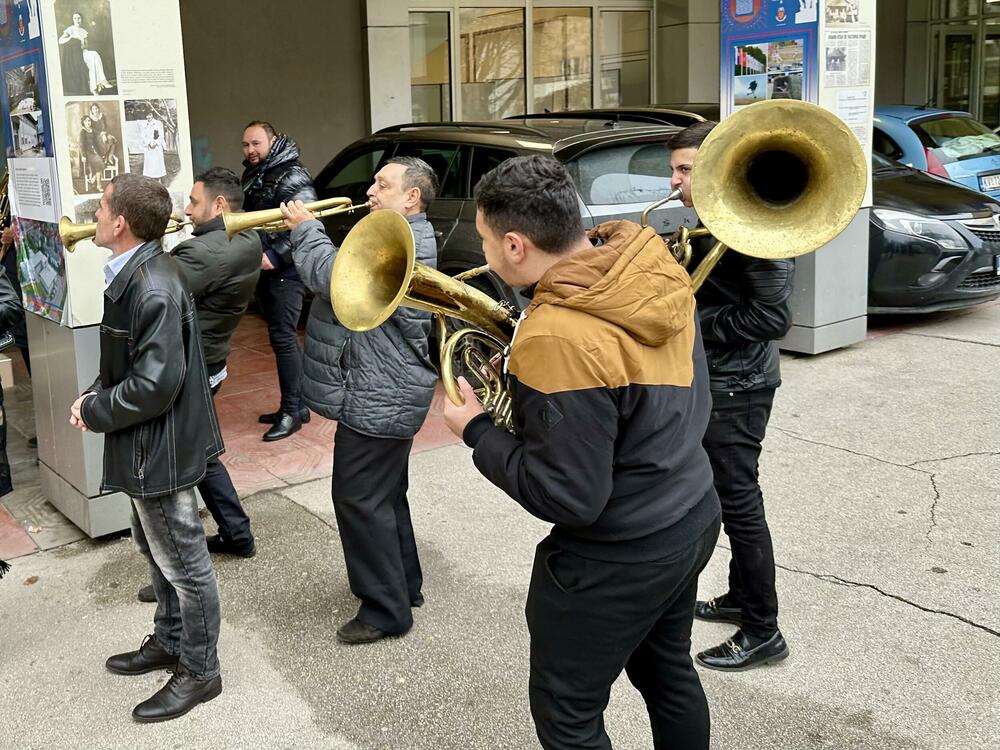
We ran into trumpeters accompanying the wedding. The day continues as joyfully as the previous night ended. The pedestrian zone is spacious and the whole town gives the impression of a much larger city, although according to the last census, the population is about sixty thousand. We walk slowly along the pedestrian street of Miloš Veliki. In moments like these, in the first encounter with the city, I almost regularly try to imagine what my life would be like in that place. What Kraljevo tells me with its energy - that would be a good life.
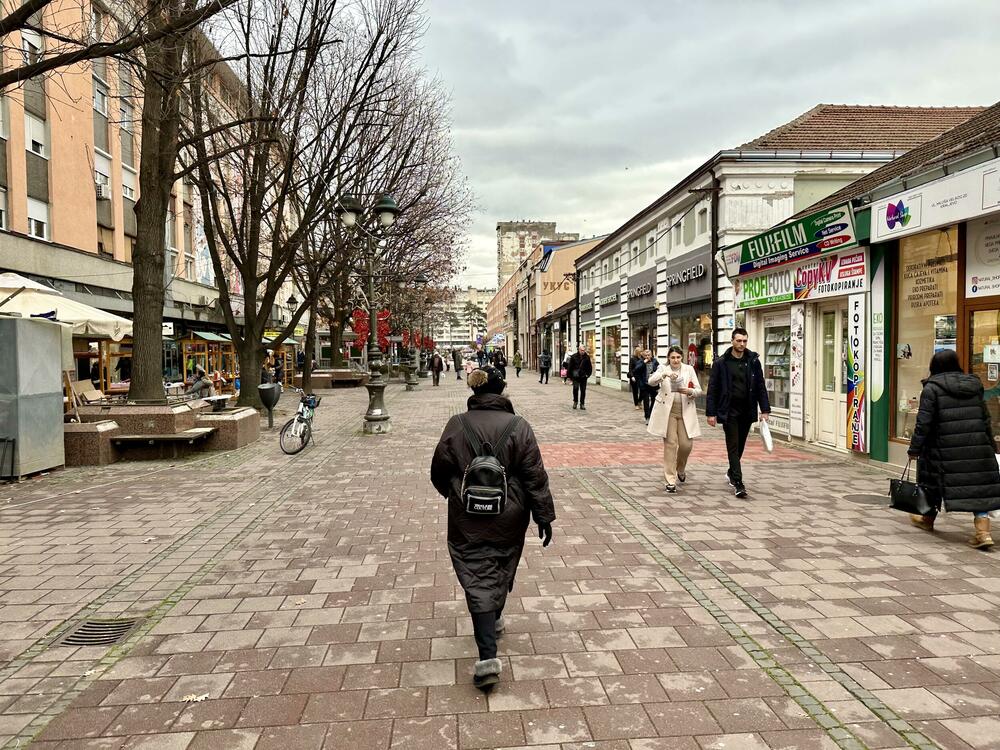
The music school and the theater bear witness to the fact that literature is not the only art cultivated here. We break out on the banks of the Ibar. We see the pool, and the promenade by the river between the two bridges.
We go down the stairs to the shore and on the way we curiously peek into the buckets of fishermen fishing in the fast river water. The Ibar is a mighty river here. Vlatko, who used to come to Kraljevo, says that in the summer the rafters are full, and people actually swim in the river.
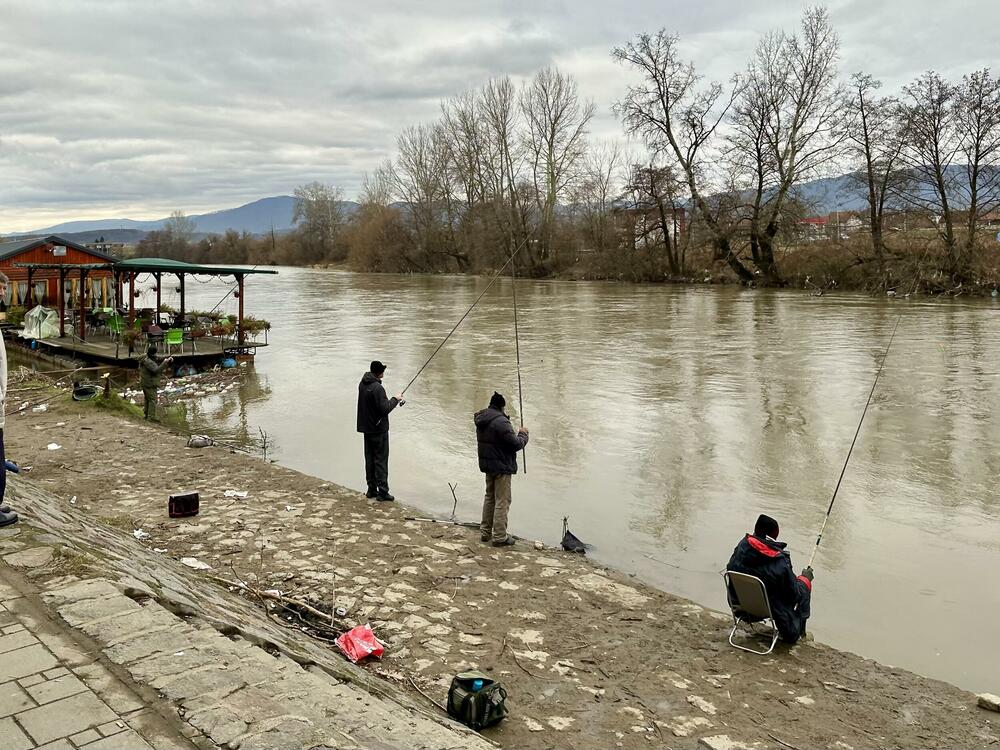
We're going back up to the city. I think that I will definitely come back here one day, in late spring, to see the rows of leafy trees and the river in which a piece of heaven is reflected.
Where Rudo Polje was
In the park above the Ibar I stop in front of one of the monuments. I read on it that the bust represents a hero called Jovan Kursula. He grew up in this area, and in 1813 he received fatal wounds in the uprising trench in Deligrad. The songs say that he was a great connoisseur.
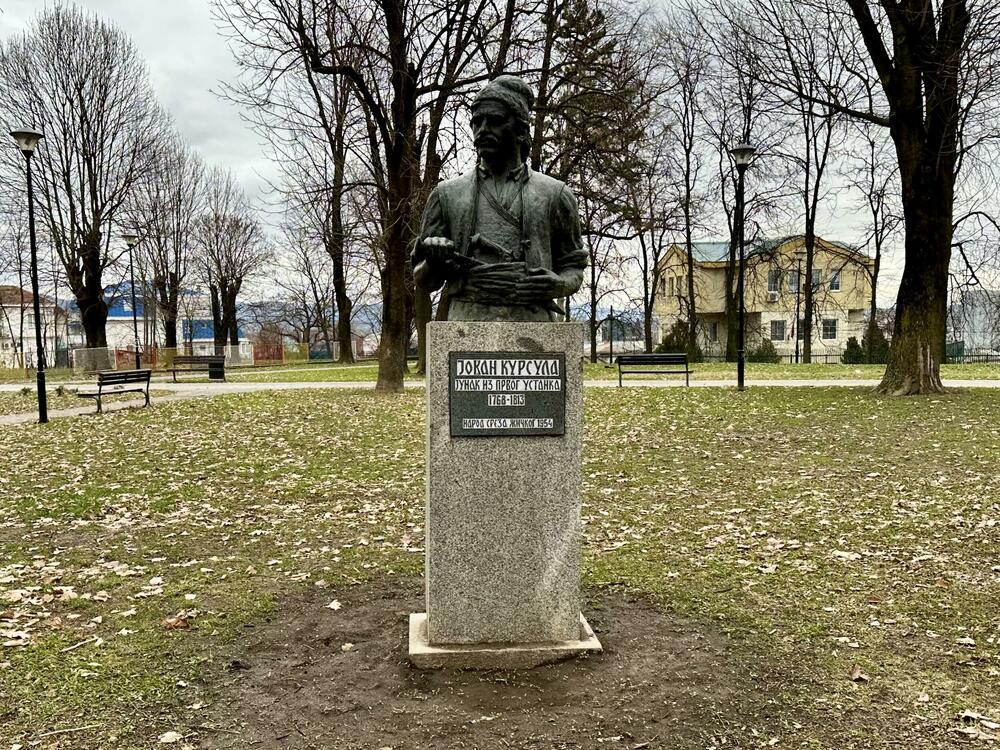
I greet Jovan in my heart, then I join the others who are already moving towards the Kraljevac market, to buy souvenirs - cream cheese and crackers. Then let's go through the center once again, to say hello to all those buildings that we didn't pay enough attention to - the Museum building from 1873, the house of the Novaković family from 1928, the tavern Paris and the former Hotel Yugoslavia.
I'm thinking about the fact that names like Divac or Ljubodrag Simonović Duci - once the best player in the world, but now a doctor of philosophy and fierce critic of capitalism - passed through the local basketball school. I know the writer and academician Goran Petrović, a man of extremely well-groomed sentences, who is also a member of this newspaper. I could list a number of other names associated with this town that are important for the world that surrounds us and the language through which we create and understand that world.
Kraljevo used to be called Rudo Polje. The Turkish invaders translated it: Karan Ovasi. And the native animal heard as Karanovac. That name was kept until the coronation of Milan Obrenović in Žiča in 1882. Varoš was then given a somewhat solemn name - Kraljevo. Admittedly, there was a short period between 1949 and 1955 in which the town was named Rankovićevo after Aleksandar Ranković. It testifies to the construction and dismantling of a local personality cult.
It cleared up. The first twilight is falling. My 24 hours in Kraljevo are coming to an end. In my purse is Dejan Aleksić's new poetry collection "Ovadde se vidi". In the poem "Self-Portrait with Own Shadow" I also find this December eve in the poet's city:
My only shadow, stretched across
Walkways, with your head on the threshold
Closed watch repair shops,
I have so much to tell you,
But the evening comes slowly
And it's time for you to lie inside me.
It remains to be noted that in the coat of arms of the city of Kraljevo, seven crowns were inscribed with which Serbian kings were crowned in Žiča, starting with Stefan the First Crowned. We leave the town towards the monastery. But Žiča is a special story.
Bonus video:



